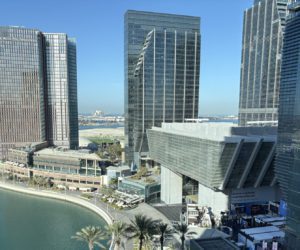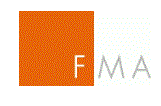Photo credit: @Marladukharan, Twitter
A Caribbean economist has claimed that the EU is weaponising its money laundering regime against smaller non-bloc countries.
Writing in the Financial Times, Marla Dukharan claims Europe is once again on a path of colonialism and this time it is “abusing another claim of superiority to wage economic warfare against many of its former colonies — that of financial cleanliness.”
The chief economist with Bitt, a financial technology company based in Barbados, claims the EU “weaponises rules on tax avoidance and money laundering. While the stated goal is legitimate, the EU’s ‘blacklist’ and roster of ‘high risk third countries’ effectively discriminate against smaller and mostly nonwhite countries to make it harder for them to compete economically. “
She alleges this is a tactic to defend “high-tax, high-public-spending form of government” from competition from countries that opt for less of each.
She says the fact that EU Members States are not on watch lists is discriminatory particularly as there is “evidence of non-adherence to their own standards and rules.
“For example, a 2019 Dutch study estimated that €13bn is laundered through the Netherlands each year. The EU’s blacklist of tax havens excludes its own low-tax jurisdictions, Hungary and Ireland, even though they have been cited by the European Parliament as having tax haven characteristics,” she claims.
The EU next month is set to add the Bahamas, Barbados, Botswana, Cambodia, Ghana, Jamaica, Mauritius, Mongolia, Myanmar, Nicaragua, Panama and Zimbabwe to its list of high-risk third countries for AML purposes. The other countries on this list are Afghanistan, Iraq, Pakistan, Syria, Trinidad & Tobago, Uganda, Vanuatu and Yemen.
Dukharan writes in the FT: ” No country on the current list is predominantly white, and almost all were colonised and arguably exploited by Europeans. Meanwhile the EU has said little about predominantly-white jurisdictions that have also been used for money laundering, including Gibraltar, the UK, Russia and the US. Nor does it seem to care about powerful countries that have been accused of financing terrorism, such as Saudi Arabia.
“The EU’s choices are doubly suspect because they do not align with those of global experts on anti-money-laundering efforts and tax avoidance. Four countries that the EU lists as high risk for money laundering — Afghanistan, Iraq, Vanuatu, and Trinidad and Tobago — have been deemed compliant with global AML rules by the Financial Action Task Force and are no longer subject to monitoring. Meanwhile two territories on the EU tax black list, the Cayman Islands and American Samoa, are considered ‘largely compliant’ by the OECD, which has been coordinating the global tax crackdown.”
Dukharan claims the stance of the EU is effective economic warfare “on non-white former colonies.”









